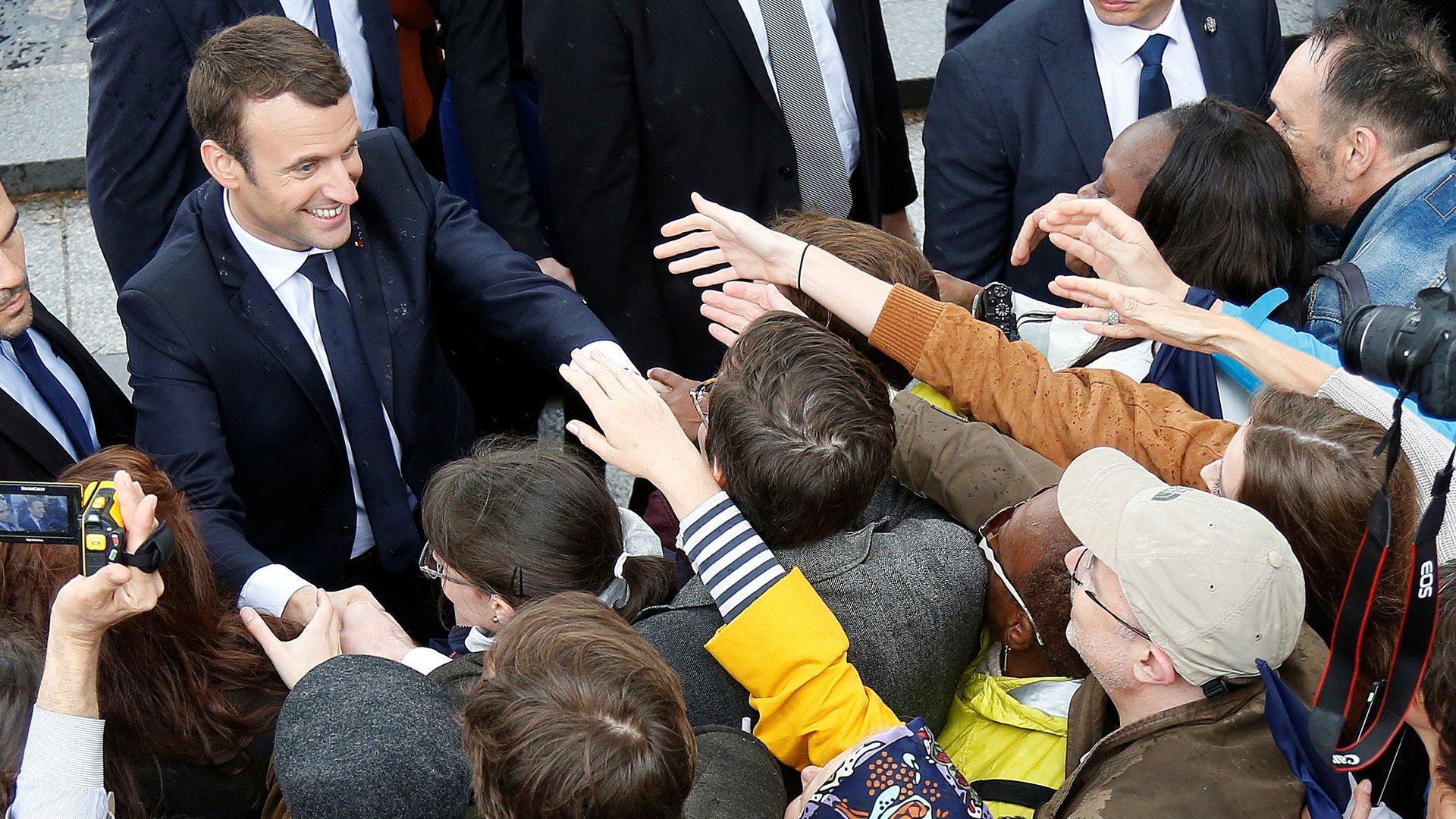Believe it or not, the euro is back in fashion
Three years of euro-bashing may be finally coming to an end. For the first time since mid-2014, the balance of traders think the euro will rise in value, instead of fall.


Three years of euro-bashing may be finally coming to an end. For the first time since mid-2014, the balance of traders think the euro will rise in value, instead of fall.
Technically speaking, that means investors have a net long position in futures and options contracts on the euro, a rare sight in recent years:
This is a somewhat niche but useful gauge of the general sentiment among traders towards any given asset—in this case, the euro. The data come from the US Commodity Futures Trading Commission, so the participants primarily trade on the Chicago and New York futures markets. It tallies the open interest (ie, outstanding contracts) at the end of each Tuesday of speculative traders, who are investors trying to make a profit based on the price movements of the currency, not market players buying or selling it to hedge their business activities.
On May 9, there were 22,399 net long contracts in euro futures and options, according to the CFTC data published May 12. A week earlier there had been 1,653 net short positions.
Why the turnaround? The victory of Emmanuel Macron, a centrist, staunchly pro-EU candidate in France’s recent presidential election, has made some more bullish about a growing European economy and fueled speculation that the European Central Bank will soon be able to remove some of its emergency stimulus measures.
The flow of money into the euro zone has pushed the euro its highest level in six months versus the dollar. Germany’s stock market just set a new all-time high. Greece—Greece!—is thinking about a return to the bond market. Risks still abound, though, and looming elections in Germany and Italy will be the next tests that determine how long the celebrations last.